Claude AI Introduces Windows 11 App: A Chrome-Based Electron Wrapper Following ChatGPT
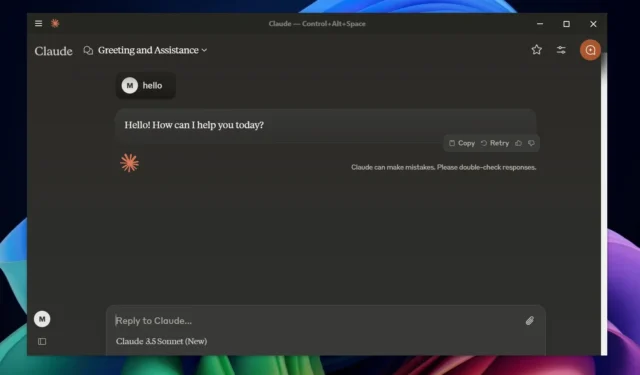
Claude has launched a new “application”for Windows 11 and 10, and I decided to give it a try. To my surprise, it simply opens https://claude.ai/ within an Electron Chromium framework. For those unfamiliar, Chromium is the backbone of many modern browsers, including Chrome, Edge, Brave, Vivaldi, and Arc.
In the past, developers focused on creating comprehensive native apps designed to integrate seamlessly with the Windows interface. Although native applications are still prevalent on MacOS and iOS, it seems that this trend has diminished significantly on Windows 11/10, and revival is unlikely unless there’s a surge in the creation of sophisticated applications.
Most of Microsoft’s recent applications leverage Edge WebView, with competitors opting for web-based solutions as well. Unfortunately, many have resorted to using the slower Chromium instead of Microsoft Edge’s WebView. Following the introduction of the Chromium-based ChatGPT Windows app, Claude has rolled out a comparable application.
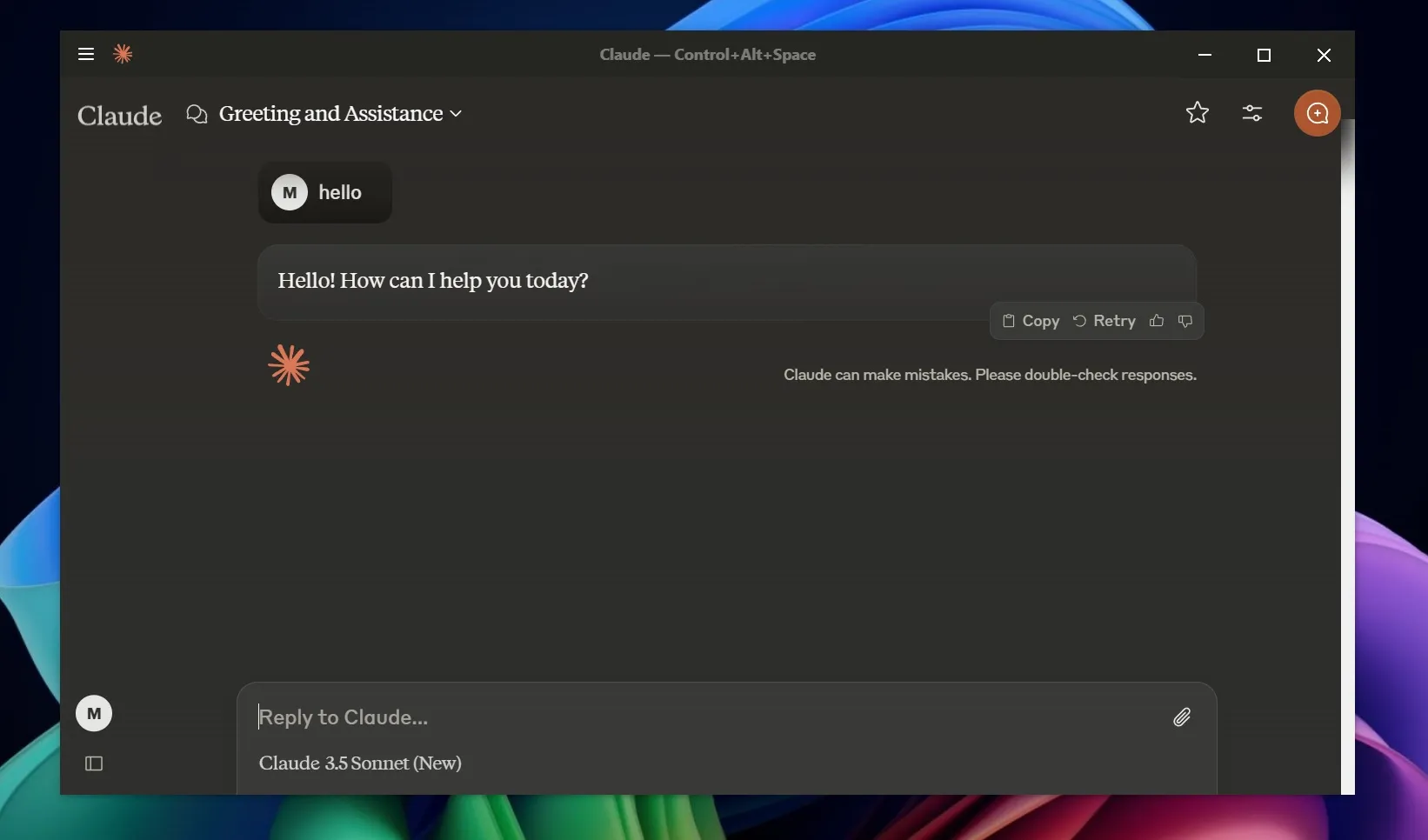
Similar to ChatGPT, Claude’s offering for both Windows 11 and 10 runs on Electron.
During our analysis, Windows Latest discovered that the Claude AI application operates through an Electron (Chromium) wrapper. This was evident due to the presence of several files typically associated with Electron applications, such as “chrome_100_percent.pak” and “chrome_200_percent.pak,” which are integral to the Chromium engine.
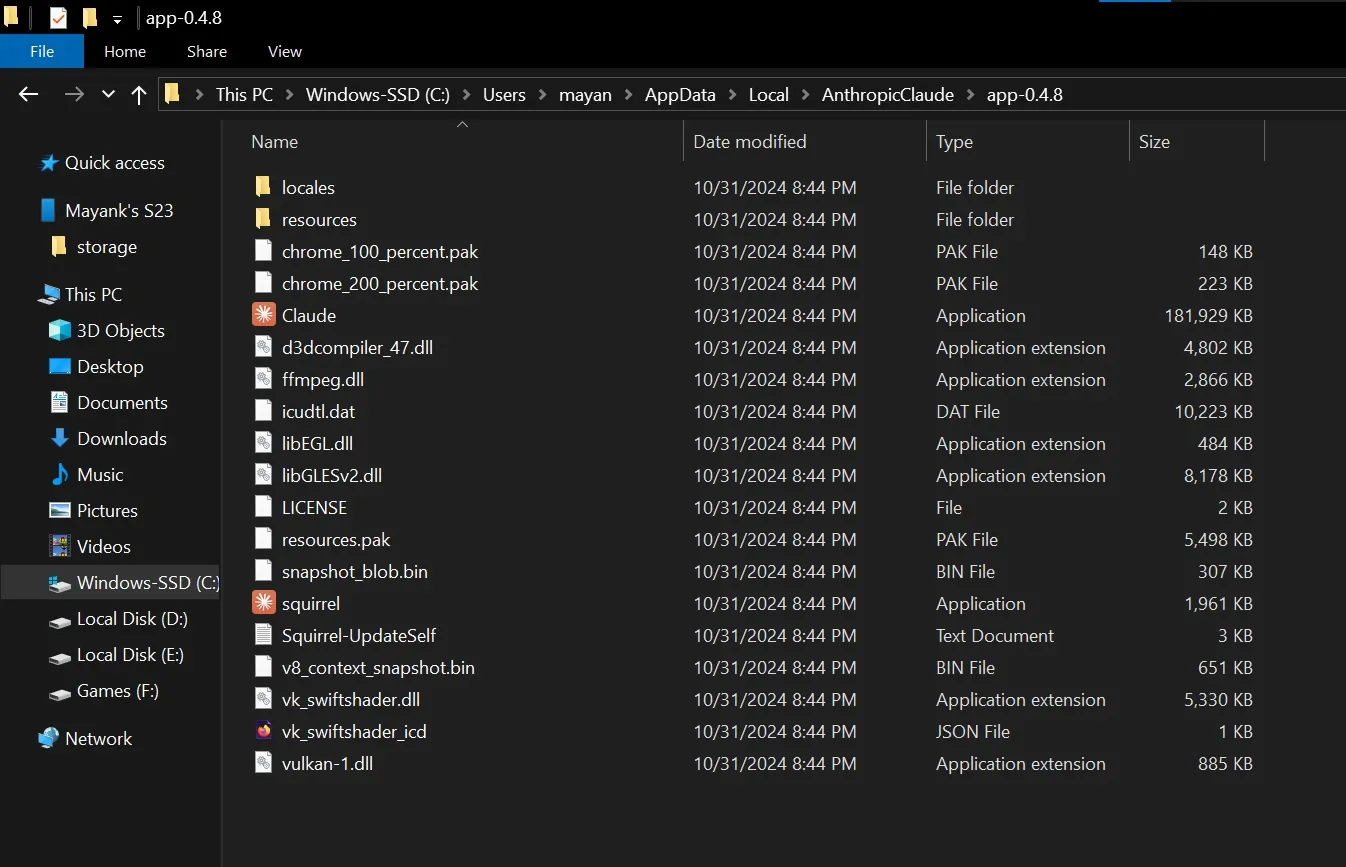
We also identified files such as “libEGL.dll,” “libGLESv2.dll,” and “vulkan-1.dll,” confirming that Claude employs Chromium’s rendering capabilities.
These components are essential for Electron’s web content rendering. While Electron isn’t inherently bad — as demonstrated by successful applications like Notion Ink and Slack — which offer a satisfactory user experience, Claude merely reflects the AI’s website. Utilizing Electron seems unnecessary when it simply loads a website within a Chromium shell.
An Electron-based Chromium wrapper tends to be bulkier compared to using Edge WebView2 (which comes pre-installed in Windows 11). Since Claude installs its own version of Chromium, it may consume over 200 MB of disk space after a while.
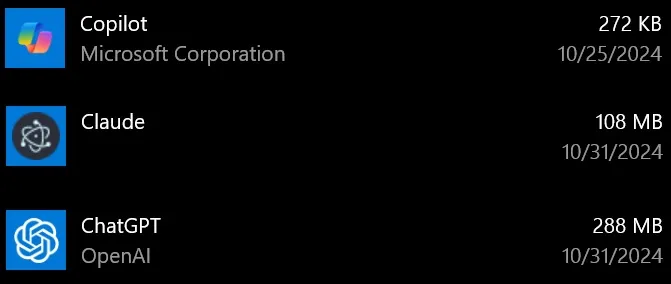
This storage requirement exceeds that of the new Copilot app, another web wrapper, which occupies less than a megabyte upon installation.
The increased storage and resource demands stem from Claude’s delivery of its individual Chromium version, akin to having a complete Chrome instance embedded within it, which may lead to higher RAM consumption while using the app.
This observation also applies to the ChatGPT app for Windows 11.
Claude’s new application is absolutely free, and it can be accessed by anyone, including those with a paid subscription ($20). Interestingly, the Claude app is not available on the Microsoft Store; thus, you will need to download it directly from the official website.
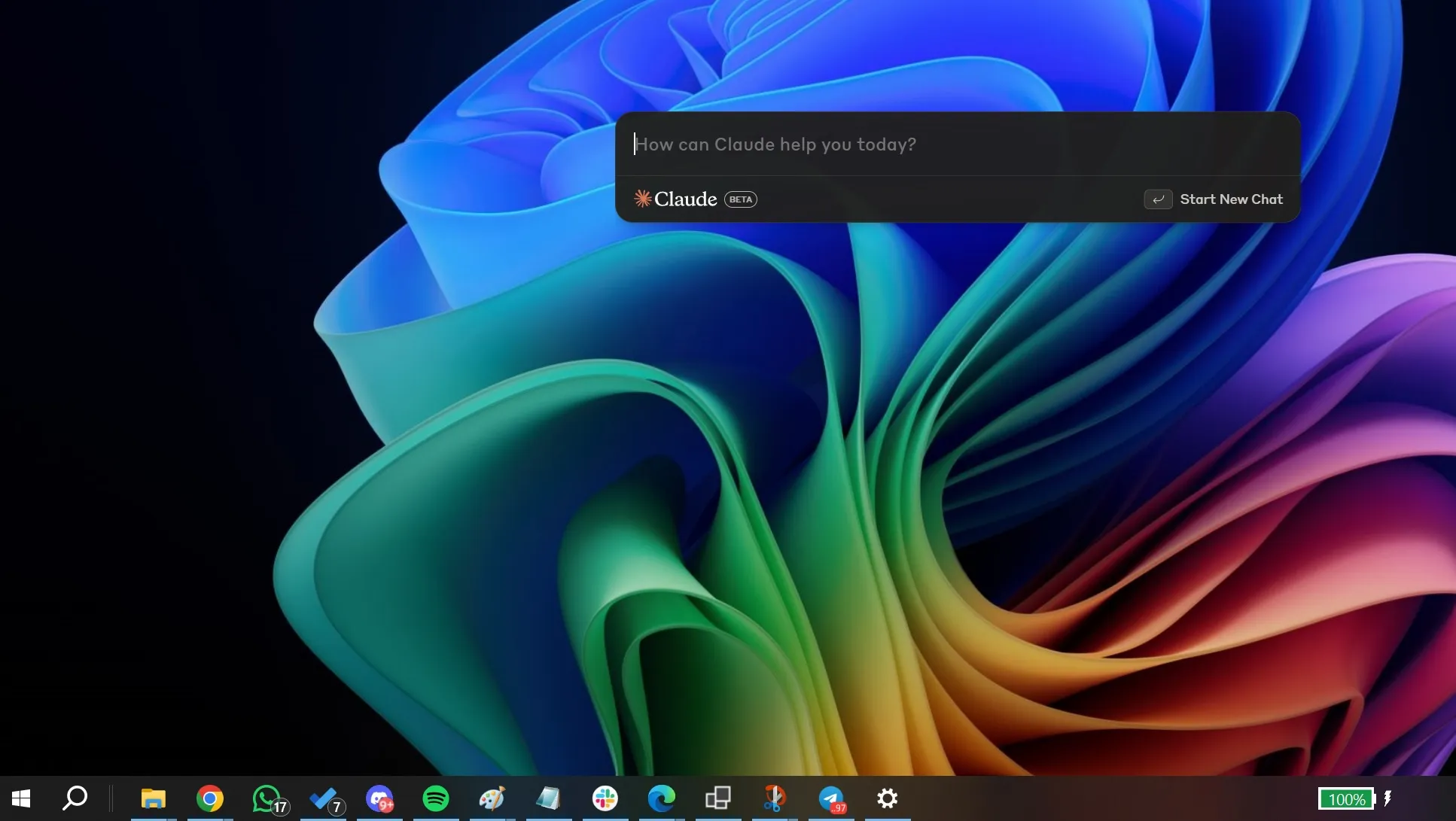
Ultimately, we really see little incentive to use the Electron-based Claude application instead of its website unless you find value in employing the Ctrl+Alt+Space keyboard combination to summon Claude AI anywhere on your Windows desktop in a compact flyout.
Is It Necessary to Have These AI Applications on Windows?
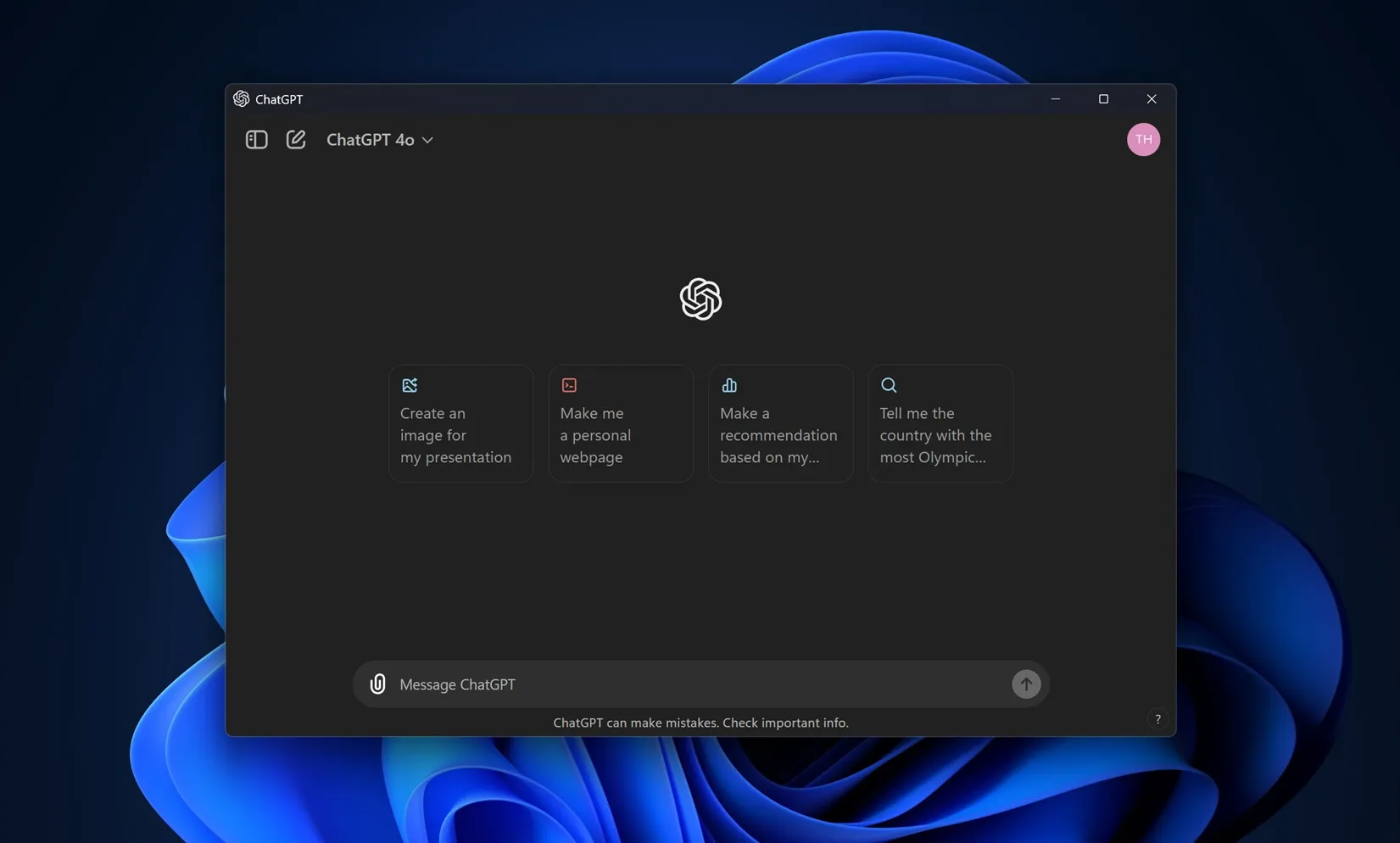
For those wishing to utilize ChatGPT or Claude on Windows, we advise accessing them through your web browser unless you’re particularly interested in some exclusive desktop features.
Claude does not provide any distinct advantages over its website aside from picture-in-picture mode, which is likewise featured in ChatGPT (screen capture below).
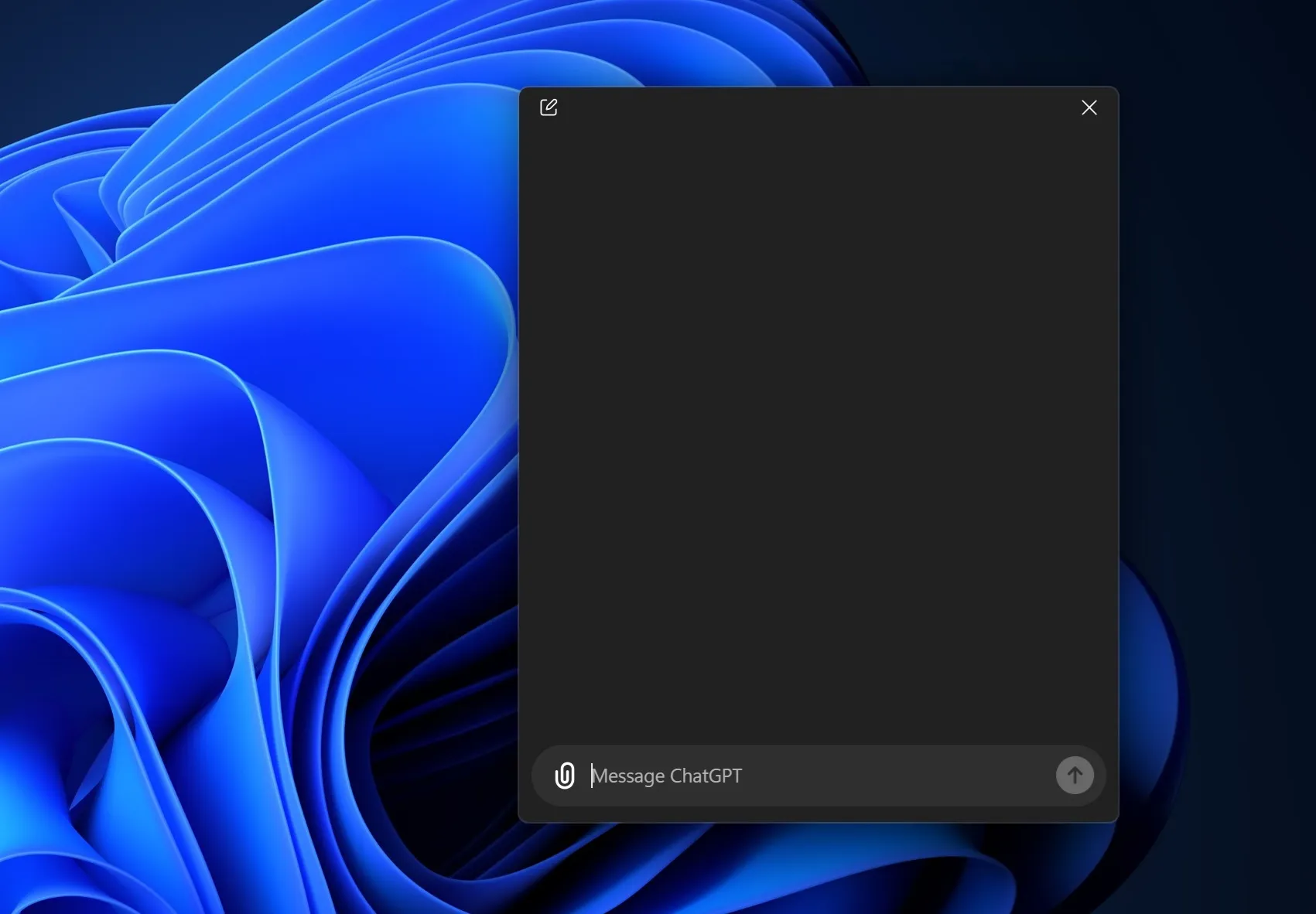
However, the ChatGPT app boasts an additional feature over the website: a sophisticated voice mode that allows you to interact with ChatGPT in a conversational manner.
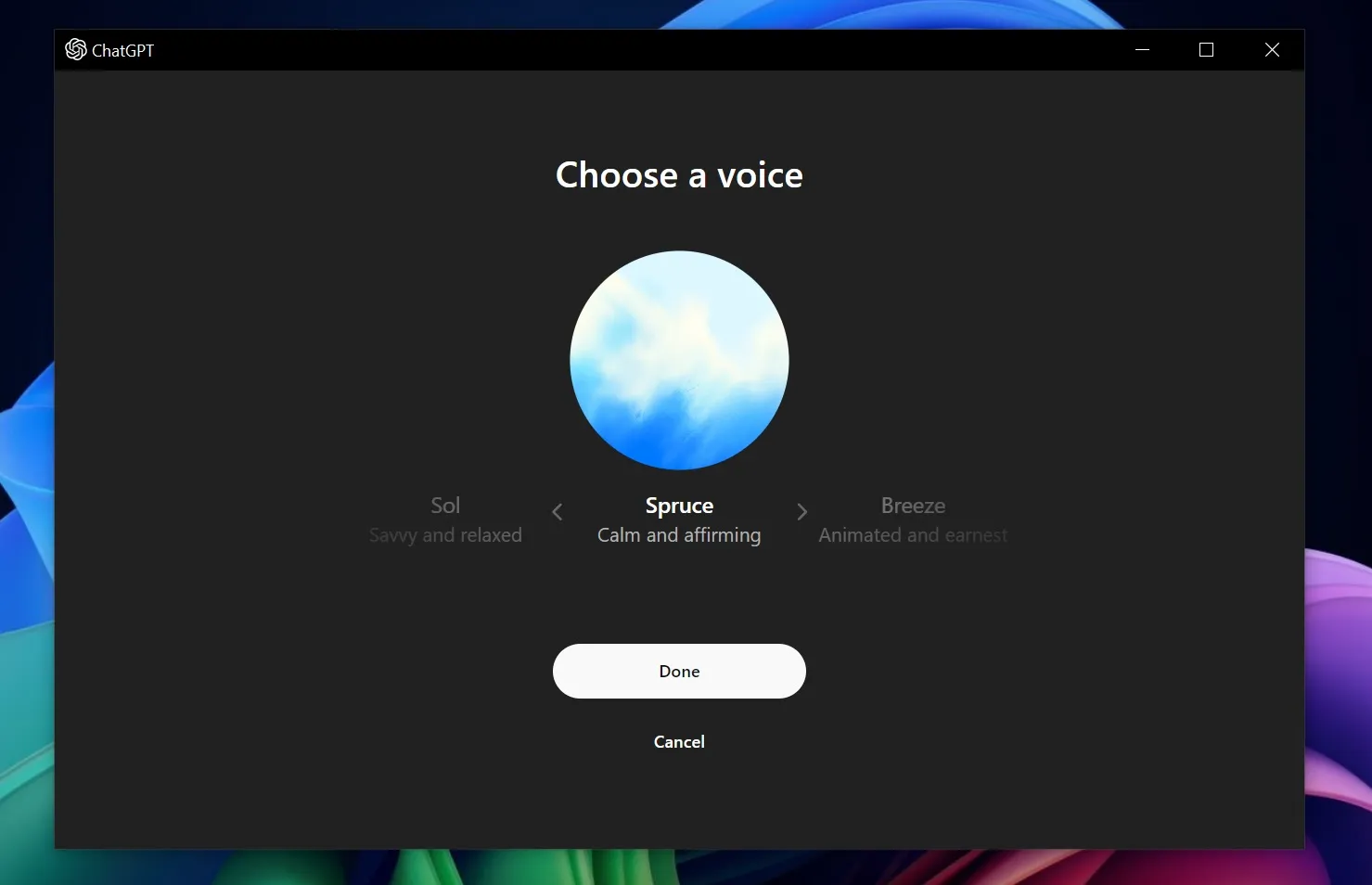
Copilot includes a comparable feature termed “Vision,”which significantly enhances capabilities beyond ChatGPT’s offering. However, it is still undergoing testing within Microsoft Edge and there’s no clear timeline on when it will be widely available.
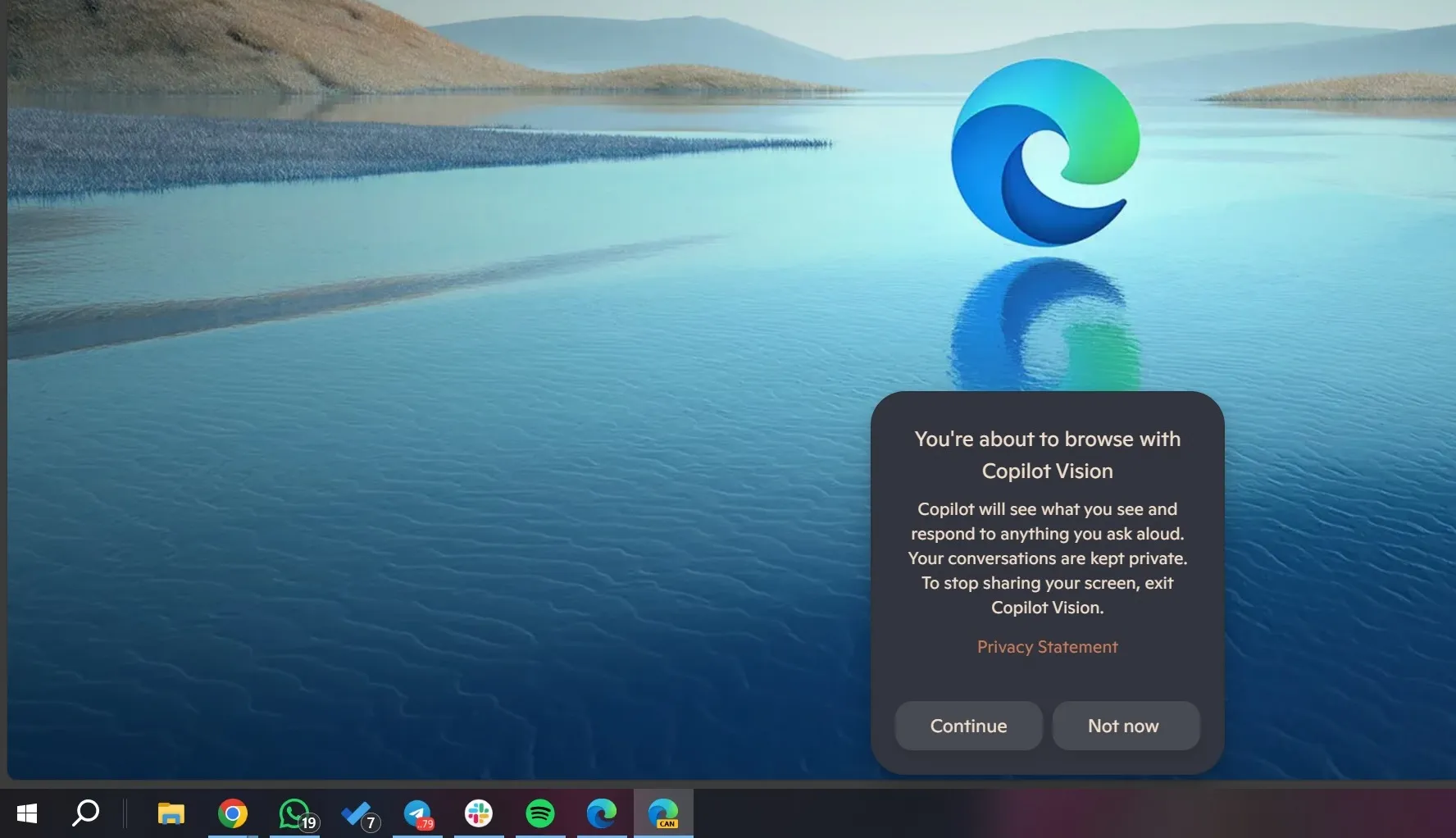
With Copilot Vision, users can engage with the Microsoft Edge screen using their voice in real time.


Leave a Reply